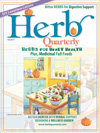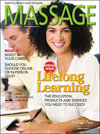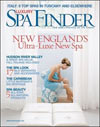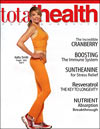The Reiki Digest for July 15, 2006: Beyond 'Airy-Fairy'
Welcome to the third edition of The Reiki Digest.
As some of you may have noticed, this publication is interactive. Every post has a "comments" feature built right in, so if you have something to say, just click on the word "comments" and start typing. In order to protect The Reiki Digest from the comment spam that is so epidemic in cyberspace, all comments are moderated -- but not censored. We hope the posts, links, and comments here will lead to an ongoing discussion for the benefit of the global Reiki community. For that to happen, we need to hear from you!
Reiki Master Claire M. Schwartz posted a comment the other day that seems a perfect place to begin a discussion on Reiki in the media:
Hi, Janet! I was reading all these articles with great interest - as a fellow Reiki Master, I want to know how we are being portrayed in the media and how Reiki is being explained to the public. While I am pleased to see that it is apparently spreading, there is a HUGE variance in how people describe it. I believe that it is not enough to just mention that Reiki is out there, but to accurately portray what it is and offer honest support for it. But I see that many of these articles have an air of derision to them or give inaccurate information altogether. The very first article says that the Reiki Practitioner draws upon her own energy field and then channels it to the client, when in fact we draw on a universal energy and only act as a conduit. This author also refers to Reiki as "airy-fairy". Another article says that "Reiki practitioners manipulate these energy fields by applying pressure, manipulating the body or placing the hands in these fields." We actually are VERY clearly prohibited from doing body manipulation, as that is strictly a massage therapist's domain, nor do we apply pressure at all. Finally, one article quotes a Reiki Master who says that "Eastern practices, like Reiki, are preventative while Western ones, like cancer radiation, are curative, she said", which in my experience is not true at all. There is growing evidence that Reiki speeds up many healing processes and offers great support in combination with conventional medicine.
My point is that I think it is important that we as Practitioners act as spokespeople for our craft, and clearly explain what Reiki is, and is not, to the lay public, so that people understand what we are doing. I know there is a great deal of variation in people's practices, and I respect that, but I don't think we can expect to be taken seriously as an alternative medicine healing modality if we do not have some standards about how we talk about it.
I would like this to open a discussion among practitioners on this point - what do you think?
Looking forward to a lively debate!
Best Blessings,
Claire
BA, Reiki master, Spiritual Counselor and Interfaith Minister
Miriam's Well Healing
As a former reporter myself, I know what you mean, Claire. Unfortunately the coverage of Reiki isn't unusually bad -- the inaccuracies you've seen in the articles we've featured here so far are fairly par for the course, for most any subject. Few reporters are experts in the fields they cover, so they just listen, take notes, and then regurgitate what they've just heard, usually on a deadline.
Reporters rarely run their stories by their sources before they are published -- that's generally considered unethical, although exceptions are sometimes made for highly technical scientific stories.
So what can we practitioners do to improve the quality, and accuracy, of coverage about Reiki? We want to get the word out, so we do want the publicity -- we just hope that eventually it becomes more accurate and less derisive. I would suggest that we give these publications some feedback. Particularly if you see a story about Reiki in your local media that has some of the problems you've mentioned here, write a letter to the editor, correcting those inaccuracies, and sign it as the authority you are: a Reiki practitioner.
Back in the 1970s when I was a cub reporter, my colleagues warned me that there were two words that would automatically draw letters of protest. Those words were "Xerox" and "Tupperware." In those days, most copiers were made by the Xerox Corporation, so people often used the word as a verb, as in "please Xerox that for me." If the word "Xerox" showed up in any article, anywhere, in any context, the Xerox Corporation's clipping service would find it, and a Xerox representative would send a form letter explaining that the word was a trademark and not to be used to refer to copying in general. They stuck to their message, and now you rarely hear anyone using "Xerox" as a verb. (In fact, you rarely hear about Xerox at all -- maybe that policy didn't work the way they'd hoped!) The same thing with Tupperware -- any reference that had that word, even used correctly, drew a letter from Tupperware explaining that the word referred only to their products. Reiki isn't a huge corporation, we don't have a public affairs department, so nobody is going to send letters out automatically in response to articles that misrepresent our healing modality. It's up to us.
One way to help reporters understand Reiki better is to offer them sessions, as part of their research. Yes, it's usually considered unethical for reporters to accept freebies, but there are many, many exceptions to that rule: reporters who cover baseball games or concerts don't have to buy tickets, and reviewers don't usually pay for the books they review.
I've given Reiki to people who knew nothing about it beforehand, as well as clients who were skeptical. So far, nobody has received a session from me and had no reaction. Everyone I've given Reiki to has loved it. It speaks for itself better than any of us can.
How about other Reiki practitioners? How do you think we can improve the quality and quantity of coverage about Reiki? Please join the discussion by clicking on the word "comments" immediately below this post.
Reiki Roundup:
We begin in Cleveland, Ohio, with a perfect example of what Claire is talking about, in this case in an article about Reiki for animals. An excerpt: "She explained that Karuna Reiki is a Reiki of compassion." Readers, if any of you hear of a form of Reiki that is not "of compassion," please alert us immediately by e-mailing editor@thereikidigest.com.Kudos to practitioner Gloria Grandel-Braun for making these points crystal clear to the reporter: "Reiki is not a religion, and it is not affiliated with any religion. And it is not a substitute for traditional medicine. It can, however, be used to complement traditional treatments."
The Orange County Register, where I once worked as a science and health reporter, mentions Reiki this week in an article about a mother dealing with the loss of her child. Brenda Paik Sunoo survived the death of her teenage son 12 years ago, as well as the December, 2004 tsunami in Thailand. She now lives in Hanoi, Vietnam, and is a Reiki practitioner as well as a grief counselor. A freelance writer, she is the author of Seaweed and Shamans: Inheriting the Gifts of Grief.
An article we featured in last week's digest about Reiki-practicing physician William DeMedio has spread far beyond its original home, The Philadelphia Inquirer, appearing in newspapers in Kentucky, Florida, Arkansas, Mississippi, Georgia, California, both North and South Carolina, Missouri, Minnesota, Illinois, and North (but not South) Dakota. Fortunately, that story is one of the more accurate ones we've seen lately.
In other news, Frans and Bronwen Stiene of The International House of Reiki have another podcast, this one on Reiki and Cancer -- I haven't heard it yet, so if you listen, please post a review here.
Celeb-Reiki:
This week's celebrities are, alas, no longer among the living. Three of them -- heiresses Barbara Hutton and Doris Duke, and entertainer Danny Kaye -- reportedly received Reiki from Hawayo Takata herself, and all lived to a ripe old age. The fourth, John Denver, also is said to have received Reiki, but he didn't get to live as long due to a plane crash.
Note: Preliminary research has indicated that Wednesday is a better publication day than Saturday for The Reiki Digest, so our next issue will be published Wednesday, July 26, 2006. If you're already a subscriber, you'll receive the next edition as soon as it is published. If you're not a subscriber, but you'd like to be, just e-mail editor@thereikidigest.comwith the word "SUBSCRIBE" in the subject line. If you want the full version, put the word "FULL" in the subject line OR body of the message, and if you prefer just a link, include the word "LINK."
Until our next edition, let's keep the discussion going. How do you think we can help Reiki move beyond "airy-fairy"?
































0 Comments:
Post a Comment
<< Home